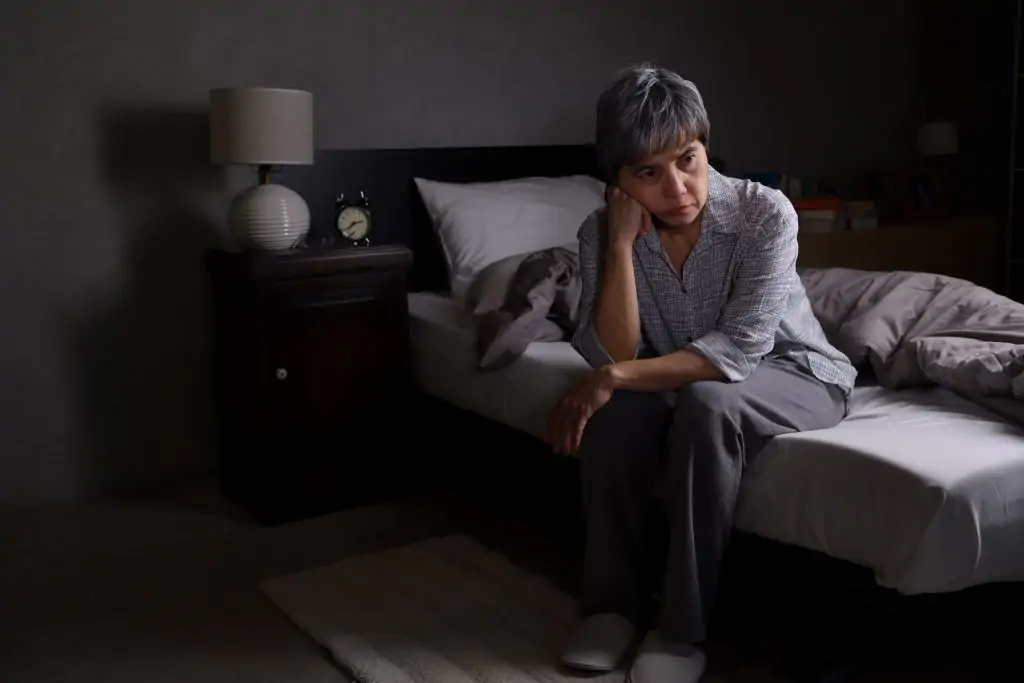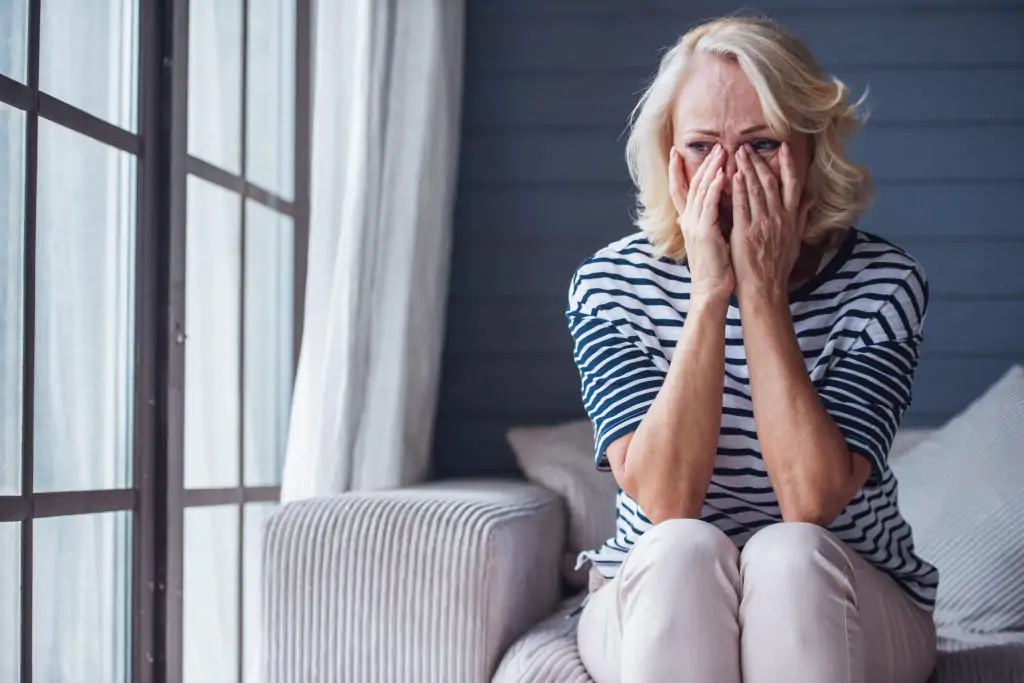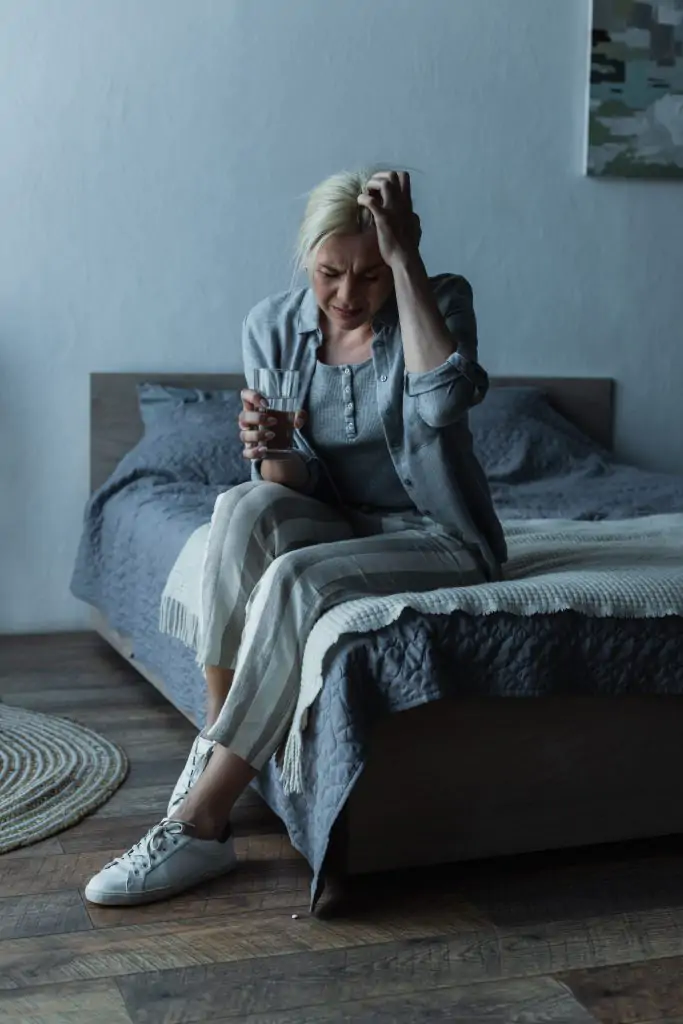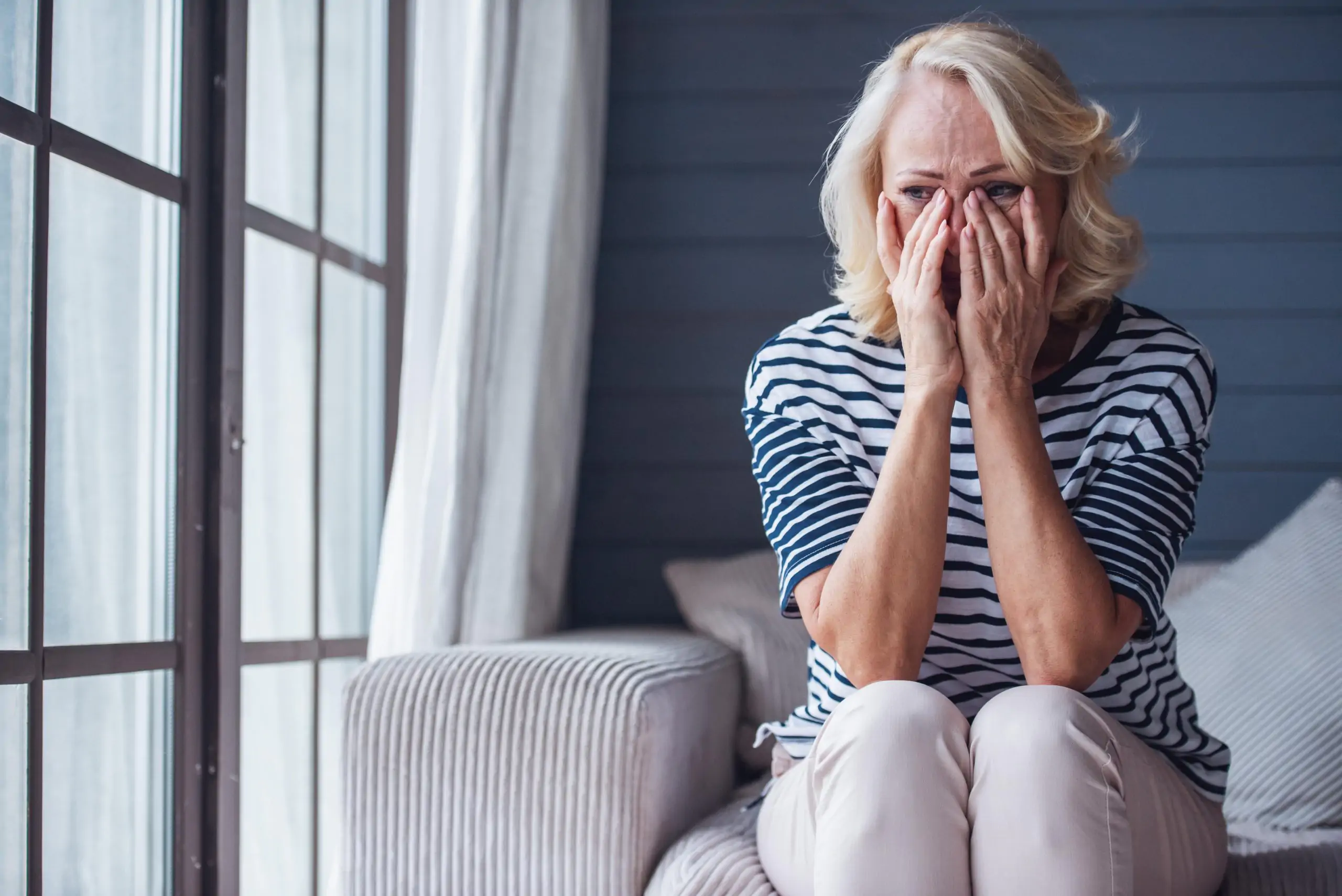What’s included?
- Introduction
- What are the common menopause symptoms?
- How menopause can trigger addiction
- Signs to spot in a friend or love one
- How you can help a loved onet
- What Delamere can do to support
According to research conducted by the University College London, nine in ten women were never educated about menopause.
Considering 90% of women experience menopausal symptoms, and 10% of women leave their jobs due to menopause, the lack of education on the topic is concerning.
Menopause is a significant physiological and psychological transition that affects women in their late 40s and early 50s.
This is marked by the cessation of menstruation and a decline in oestrogen levels.
As more women have had the space to be open about their symptoms and experiences, the link between menopause and addiction is finally being spoken about and gaining media interest.
At Delamere, for example, more than half of women who seek support for substance misuse at our clinic are between the ages of 40 and 60, demonstrating the impact menopause can have.

What are the common menopause symptoms?
There is a range of physical and emotional symptoms that begin as a result of the menopause.
These include hot flushes, night sweats, sleep disturbances and mood changes including depression and anxiety.
Women who have a history of mental health challenges are especially vulnerable during this life stage, with a risk up to four and a half times higher for major depressive episodes compared to other ages.
A survey by the Chartered Institute of Personnel and Development found that 53% of women had found themselves unable to go to work due to menopause related symptoms, and two thirds said that the symptoms negatively affected them at work.
With this in mind, it’s no surprise that menopausal women are at higher risk of addiction.
How menopause can trigger addiction
The reduced comfort and discomfort caused by menopausal symptoms can push women towards substances for relief.
In addition to this, the life stage at which women experience menopause can often be accompanied by other life stressors such as children leaving home or caring for elderly parents.
Substances such as alcohol and sedatives may provide temporary relief from symptoms, which can lead to dependency.
For example, insomnia can drive women towards alcohol or sleeping pills, and the mixture of the two can have dangerous results.

The use of alcohol to alleviate symptoms can quickly become a vicious cycle. Many women drink alcohol to lessen the symptoms of emotional stress or mood disorders linked to menopause, yet regular consumption of alcoholic drinks not only increases risk of addiction but has detrimental impacts on physical and mental health.
In recent years, we have seen rising rates of addiction among women between the ages of 45 and 60 in the UK. According to some sources, up to seven to eight per cent of women in this age group have a history of substance abuse – noticeably higher than younger groups.
Older women tend to metabolise substances differently during menopause, making them more susceptible to the harmful effects of alcohol and drugs.
With that said, this demographic is more likely to seek treatment for alcohol addiction than younger women.
Signs to spot in a friend or love one
Most commonly, women are affected by alcohol addiction during menopause. It is important to spot the signs of this in a friend or loved one you may think is struggling.
Here is what you need to look out for:
- Social isolation – giving up on social activities to drink alcohol.
- Spending a lot of time drinking alcohol, or drinking in unsafe situations.
- Failing to fulfil life obligations. This could be going to work, keeping plans with family or friends, or a reduction in hobbies such as exercising.
- Expression of guilt after drinking alcohol, or being secretive about drinking habits.
- Drinking alcohol in the morning.
- An inability to remember events that took place under the influence.

If you yourself are reading this and are concerned about your relationship with alcohol, here are some things you can do to address this:
- Reach out to friends and family
- Set yourself a daily alcohol limit and hold yourself accountable
- Assign a few alcohol free days a week
- Spread your units out to avoid binge drinking
Other factors that can improve mental health include:
- Research and implement mindful practices such as meditation, breathwork and yoga.
- Write down your thoughts and feelings, and keep a log reminding you of your motivation.
- Eat a healthy nutrient-dense diet and spend time cooking and eating mindfully.
- Prioritise spending time outside and moving your body
How you can help a loved one
Hormone Replacement Therapy (HRT) has been shown to alleviate some physical and emotional symptoms of menopause, potentially reducing the need for individuals to self-medicate with alcohol or other substances.
However, according to a report by the Department of Health and Social Care, in the last year only 15% of women 45 to 64 were prescribed HRT.
Alongside medical treatments, psychological support and therapy can help women to manage the mental health challenges that arise at this time.
What Delamere can do to support
Delamere’s treatment model utilises holistic therapies to help guests uncover the causes of their addiction.
This included group therapy sessions, one-to-one therapy and holistic practices such as breathwork, equine therapy and yoga.

For guests who arrive at Delamere struggling with addiction that is linked to menopause symptoms, the team is well equipped with practices and advice that integrates medical and psychological care.
The Stop, Start, Grow, Bloom treatment model is what makes Delamere different, and listens to the unique journey of individual guests and tailors their stay to their needs.








